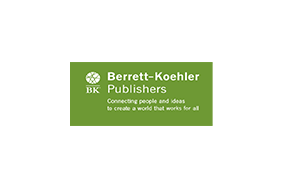Corporations and the Public Interest: Guiding the Invisible Hand By Steven Lydenberg
Published 03-01-05
Submitted by Berrett-Koehler Publishers
Societies have taken these radical steps believing that private enterprise is the road to prosperity for all. But, as we enter the 21st century, business scandals, callous shows of corporate greed, financial crises, environmental degradation, and societies mired in poverty are stark reminders that business alone, unregulated and unsupervised, will not solve the world problems.
If the bet on corporations and free markets is to pay off, if transferring assets and power from government to the private sector is to benefit society in the long-run, a clearer understanding of what public interests business can serve is needed and of how investors, consumers, and government can steer it in that direction.
In his new book Corporations and the Public Interest Steven Lydenberg attempts to answer three key questions: What is the public interest that we have set corporations free to serve? How can society know when corporations are in fact serving that interest? How can society reward those companies that are serving that interest and impose a cost on those that are not?
Lydenberg argues that society now expects corporations to create a new form of long-term wealth. It is wealth that will survive the corporation if it should go out of business tomorrow. It is profits that corporations achieve without taking from society more than they return. This new definition of wealth requires that: Corporations not externalize costs onto society; corporations not exhaust natural and societal resources that could otherwise be used by future generations; and corporations not divert their profits and assets for unproductive use, but invest them in creating value for stockowners and other stakeholders.
Using this definition, it is possible to create a system that will assess when corporations are acting in the public interest and to steer them in that direction. To do so, however, governments and the markets need to assure that at least three things happen:
These are not small tasks. Without them, however, society cannot reasonably expect that corporations will be directed to act in the public's long-term interests. Only a systematic approach, encouraged and supported by government, can assure success in this endeavor.
****
Steven Lydenberg is Chief Investment Officer for Domini Social Investments LLC. He has spent over 27 years in the social investment and corporate social accountability worlds. In 1990, he became a founder of Kinder, Lydenberg, Domini & Co., where he served for 11 years as Research Director. During that time he was instrumental in the creation and maintenance of the Domini Social Index, the first socially screened equity index in the U.S. He also played a key role in the development of the company's Socrates Database, currently a major resource tool for the socially responsible investment community. With his partners, Amy Domini and Peter Kinder, he was co-editor of The Social Investment Almanac(1992) and co-author of Investing for Good (1993). Most recently, his article "Envisioning Socially Responsible Investing: A Model for 2006" appeared in the Autumn 2002 issue of The Journal of Corporate Citizenship.
To read an excerpt in PDF format from Corporations and the Public Interest, click
here.
Corporations and the Public Interest: Guiding the Invisible Hand
By Steven Lydenberg
Published by Berrett-Koehler Publishers, Inc.
ISBN: 978-1-57675-291-3
Cloth $27.95
Number of Pages: 192
Publication Date: March 2005

Berrett-Koehler Publishers
Berrett-Koehler Publishers
Berrett-Koehler Publishers is a mission-based, independent publishing company located in Oakland, CA. Berrett-Koehler’s (BK) mission is - Connecting People and Ideas to Create a World that Works for All. BK publishes books in the areas of sustainable business, corporate social responsbility, leadership, social justice, politics, economics, and personal development. BK is both a B-Corp and a Benefit Corporation.
More from Berrett-Koehler Publishers

